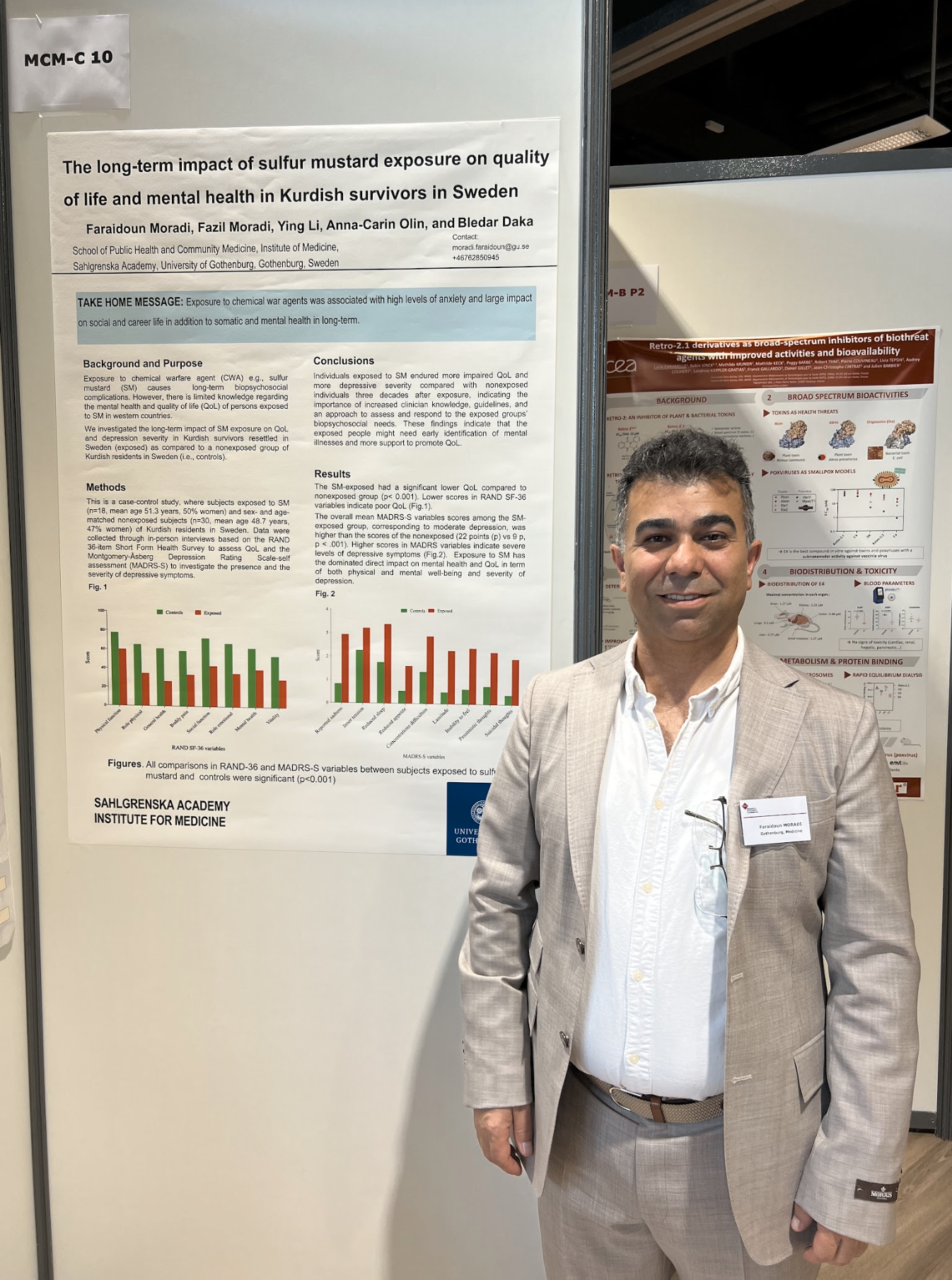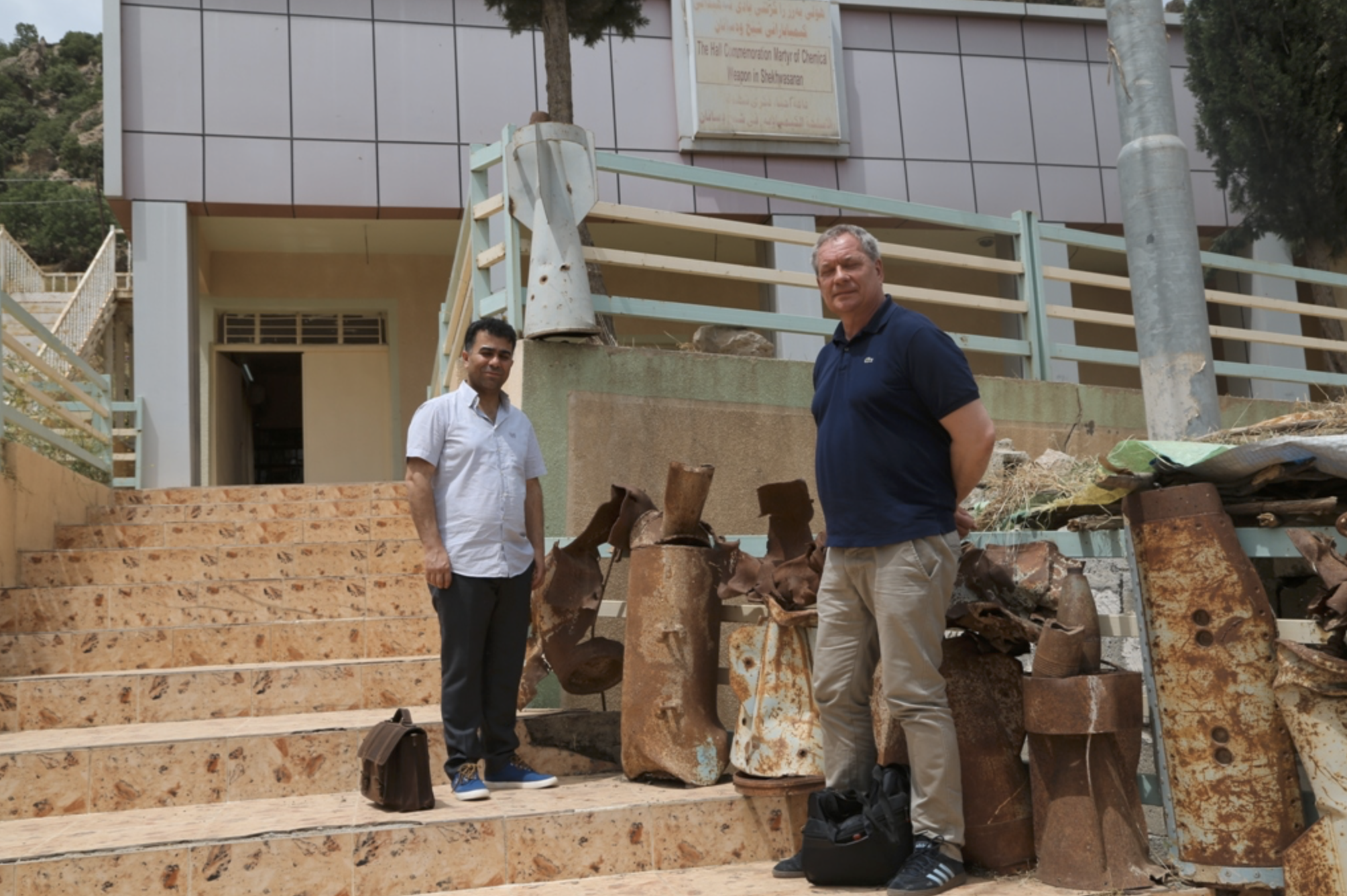Faraidoun Moradi’s earliest memories are filled with the beauty of a clear sky surrounded by towering mountains and playful moments on nearby farms. However, these happy memories are overshadowed by the harrowing night his family – with the assistance of compassionate individuals near the border – fled to the Kurdistan Region of Iraq as refugees. This unfortunate turn of events was a direct result of the 1979 Iranian Revolution and the subsequent war against the Kurdish population in Iran, all of which happened before Moradi had started formal education.
Raised in Dalaho in Kermanshah Province in Eastern Kurdistan (northwestern Iran) – a region marked by discrimination against non-Muslims, particularly in the mountainous area where his family resided – Moradi’s early life was challenging. In 1990, seeking a safer and more stable life, his family moved to Sweden, embracing a new rhythm in their “new haven.” Despite the initial difficulties, Moradi set his sights on building a better future.
In 2006, Moradi achieved a significant milestone, graduating from Uppsala University with a master’s degree in pharmacy. His academic pursuits led him to write his undergraduate thesis at the University of London, resulting in the publication of his research in the prestigious British Journal of Pharmacology. Notably, he completed his education in four and a half years, an impressive accomplishment.

Passionate about education and research, Moradi pursued a master’s degree in medicine from the University of Gothenburg in 2012. Continuing his journey, he attained the title of specialist in family medicine in 2020, allowing him to provide comprehensive healthcare to individuals and families in need.
Currently, Moradi is researching the long-term effects of mustard gas on the mental health, quality of life, and lung function of Kurdish survivors of chemical attacks. This research extends beyond the Kurdish community in Sweden to the resilient people of Halabja in the Kurdistan Region.
Throughout his journey, Moradi has maintained a commitment to serving marginalized communities, actively participating in various student associations and international medical organizations. Today, he is a general practitioner contributing his expertise to patient care while concurrently working at the Center for Catastrophe Medicine at the University of Gothenburg.
In 2023, Moradi earned a PhD, shedding light on the long-term effects of mustard gas on Kurdish survivors and actively contributing to academia and the medical field. His life story exemplifies resilience, determination, and a commitment to making a positive impact on the lives of others.

Dissertation Research
Chemical weapons, particularly mustard gas, pose a significant threat to human health and safety. Despite being easy and cheap to produce, they cause physical and psychological damage, with potential long-term effects on individuals’ well-being. Moradi’s dissertation, entitled “Long-Term Impacts of Sulfur Mustard Exposure on Mental Health, Quality of Life, and Lung Function,” focuses on exploring the consequences of mustard gas exposure, comparing exposed individuals in Sweden and the Kurdistan Region of Iraq with unexposed counterparts.
The thesis delves into the Anfal Campaign, a genocide in Iraq involving chemical attacks on the Kurdish population. Moradi utilizes qualitative research to uncover life experiences, social conditions, and gender differences among exposed individuals. Additionally, quantitative studies in Sweden reveal differences in mental health and quality of life between exposed and unexposed individuals, emphasizing the need for increased awareness and research dedicated to addressing the long-term physical and neuropsychiatric symptoms, as well as gender-specific differences, in this vulnerable population.
Moradi’s findings underscore the importance of a biopsychosocial model to address the unique needs of individuals exposed to mustard gas, emphasizing the need for continued research and resources in this critical area.
Rahim Rashidi, a Washington DC-based Kurdish journalist, is widely recognized as "Mr. Kurd." He is focused on Kurdish affairs in Kurdistan and abroad.

